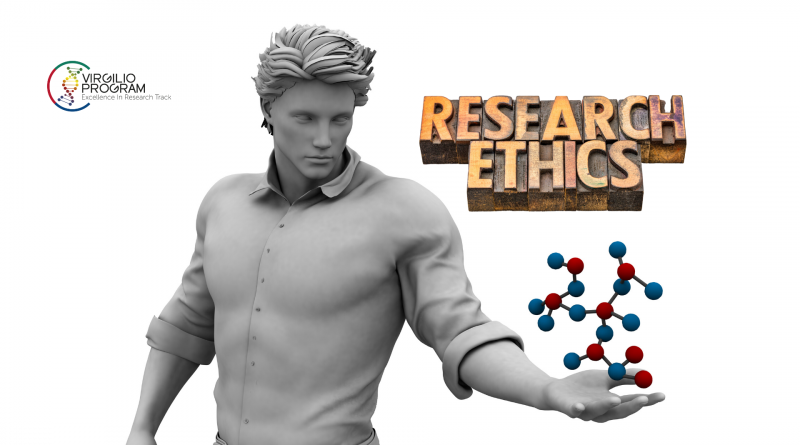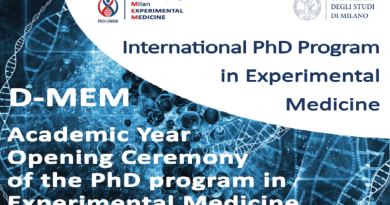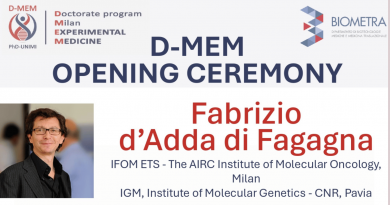Course On Research Ethics
Virgilio Program is organizing an online course on
RESEARCH ETHICS
SCHOOL OF MEDICINE AND SURGERY,
UNIVERSITA’ DEGLI STUDI DI MILANO BICOCCA
Methodology: Webinar
The two-day workshop in Research Ethics will provide students with an overview of the main ethical and legal issues related to scientific research.
The Research Ethics course is designed in a highly innovative manner, with the goal of fostering an ethical attitude in the relationship with the patients and/or the lab animals (research ethics and animal ethics) and with the colleagues (research integrity).
After completion of this course, students will be able to comprehend the ethical and legal aspects related to the most debated bioethical issues in the clinical practice, such as informed consent in clinical trials on incapacitated subjects, minors and pregnant women, privacy and confidentiality of clinical trial data, scientific research on human embryos, genome editing (CRISPR-Cas9), clinical trials in developing countries, experiments on animals, and in particular, on Non-Human Primates (NHPs), scientific frauds.
The workshop will be divided in 3 class sessions specifically looking at i) research ethics and bioethics (the ethics of human experimentation), ii) animal ethics (the ethics of animal experimentation), as well as iii) the management of research misconduct (research integrity).
Each class session will be built upon a critical assessment of case studies that will shed light on the complex interplay of the bioethical, scientific, and legal implications that characterize medical research.
Learning Outcomes:
at the end of the course, students will be able to:
• comprehend the main ethical and legal challenges related to clinical research;
• commit to the better management and governance of clinical research;
• carry out scientific research on humans and animals in line with research and animal ethics and the law;
• avoid serious breaches of research integrity (i.e. fabrication, falsification and plagiarism)
PART I RESEARCH ETHICS AND BIOETHICS
The ethical framework
Introduction to Research Ethics and Bioethics
History of Research Ethics and Bioethics: The Hyppocratic Oath, the Nuremberg Code, the Tuskegee Syphilis Study (1932-1972), the Belmont Report
The Birth of Bioethics
Principles and Guidelines: the Declaration of Helsinki (WMA); the ICH-GCP guidelines; the CIOMS International ethical guidelines for health-related research involving humans; the UNESCO Declaration on Bioethics and Human Rights
Evaluating Risks and Benefits
Obligations to Research Participants
Engaging with Communities
Privacy and Confidentiality
Informed Consent
The legal framework
Council of Europe
The CoE’s Convention on Human Rights and Biomedicine
Additional Protocol to the Convention on Human Rights and Biomedicine, concerning Biomedical Research
European Union (EU)
the Clinical Trials Regulation EU No 536/2014
Special Topics in Research Ethics
Biobanks and genomic research
Research on people with disabilities
Children in Biomedical Research
Payment for Human Subjects
Research in Developing Countries
Ethics of Organ Transplantation
End-of-Life Care
PART II ANIMAL ETHICS
The ethical framework
The foundations of animal ethics
The animal rights position (Regan, Singer, Francione)
The welfarist position (Garner)
New Welfarism
The main ethical and scientific arguments in favour and against experimentation on animals
The concept of the Three Rs (Reduction, Refinement, Replacement)
Alternatives to animal testing
The xenotransplantation ethics debate
The legal framework
Council of Europe
European Convention for the Protection of Vertebrate Animals used for Experimental and Other Scientific Purposes
European Union
Article 13 Treaty on the Functioning of the European Union (TFEU), animals as sentient beings
Directive 2010/63/EU on the protection of animals used for scientific purposes
Italy
Legislative Decree No. 26 of 4 March 2014, Implementation of Directive 2010/63/EU on the protection of animals used for scientific purposes
PART III RESEARCH INTEGRITY AND SCIENTIFIC MISCONDUCT
The ethical and historical framework
The importance of research integrity in the public perception of the value of science
The most relevant cases of scientific miscodunct: Gallo vs Montaigner (HIV virus discovery), Wakefield (the link between vaccines and autism); Jankui He (germline gene editing);
The reward system of science: ‘publish or perish’ and the contrast between scientists’ non-epistemic goals and the epistemic goals of science;
Definition of scientific misconduct: Fabrication, Falsification, Plagiarism;
‘Grey areas’: questionable research practices;
The legal framework
International level
The Singapore Statement on Research Integrity (2009)
Montreal Statement on Research Integrity in Cross-Boundary Research Collaborations (2013)
Hong Kong Manifesto: Principles for Assessing Researchers: Fostering Research Integrity (2019)
European level
The European Code of Conduct for Research Integrity (2011, rev. 2017)
Domestic level
The self-regulatory model (Italy: CNR Guideliens on Research Integrity; Finland: Finnish National Board on Research Integrity)
The sanctionatory model (United States: Office of Research Integrity)




Pingback: Global Health Governance Implications in Covid-19 Pandemic - VIRGILIO PROGRAM – Excellence in Research Track